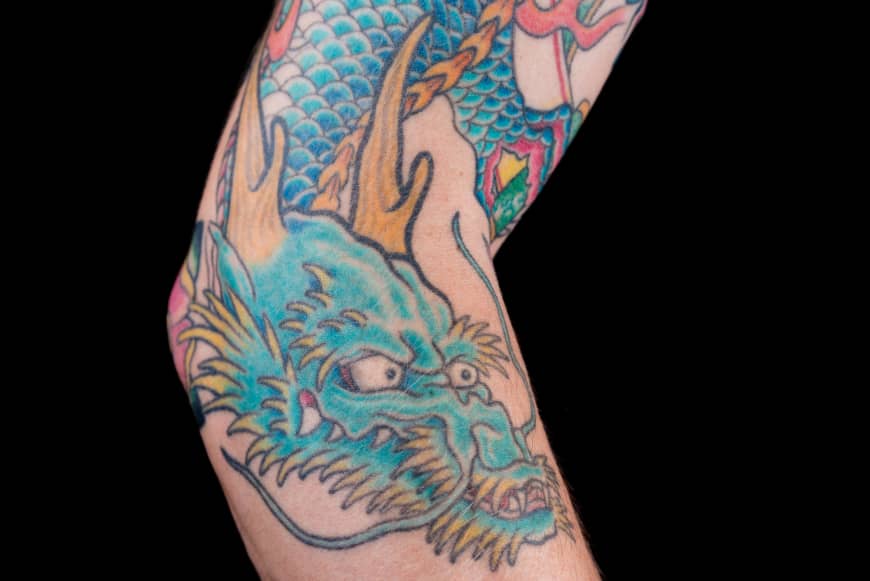 Gang membership is declining in Japan. | GETTY IMAGES
Gang membership is declining in Japan. | GETTY IMAGES
Japan's gang members are running out of places to hide
Membership in organized crime syndicates has been decreasing about 10 percent each year since 2011, according to National Police Agency statistics.
The reasons for the decline in membership are complex but we should give credit to the police for using every means at their disposal to put them behind bars or force them to go straight. Law enforcement officials are finally utilizing legislation that has existed for years without really being applied effectively.
Gangsters that remain in syndicates have no place left to hide, with many being picked up for either trying to hide their identity or conceal evidence.
According to the Osaka Police Department, several Yamaguchi-gumi gangsters attacked a rival gang member in the street on Feb. 7. Interestingly, security cameras at the entrance of the syndicate caught the assault on tape.
Police officers arrested five gang members on assault charges in April 2018, asking the syndicate to voluntarily hand over the tapes for review. The syndicate refused to comply with the request.
After obtaining a search warrant, police officers then raided the syndicate’s offices and seized the tapes. The period of time when the assault had taken place had been erased.
In November, the police then arrested 11 members of the gang for willfully destroying evidence, which constitutes a violation of the organized crime control laws.
A veteran organized crime case officer, who spoke on condition of anonymity, said prosecuting gangsters for destruction of evidence was a new tactic in the war against organized crime.
“There was a time when violence between gangs was overlooked,” the officer says. “Over time, however, we’ve realized that such crimes can spill over and hurt ordinary people. But by prosecuting gang members for destroying evidence, we’re also adding pressure on gangsters to confess to their crimes — like they used to in the old days.”
The organized crime ordinances that went into effect nationwide on Oct. 1, 2011, not only criminalized paying off syndicates but also prompted banks, real estate agencies and other firms to revise their contracts and exclude syndicates as clients.
Such clauses appear on forms like gym membership applications, where potential members are asked to check a box confirming they’re not part of a gang. If a gang member is later found to have checked this box, they can be arrested for fraud — and often are.
According to the Yomiuri Shimbun newspaper, 59 of 120 banks nationwide had used exclusionary regulations to cancel contracts with gang members as of Sept. 4 last year. More than 1,300 bank accounts have been closed as a result.
Some gang members argued the regulations are a violation of their human rights but courts in Japan disagree. In a case contesting the unilateral closing of yakuza accounts, the Fukuoka High Court ruled that “exclusionary clauses governing organized crime are necessary to restrict the economic activities of gangs and limit their acquisition of funds.”
Moreover, the court ruled, “they exist to protect the peace and safety of society” and were, therefore, perfectly legal.
Gang members now find themselves in a bind. If they attempt to hide their identity or conceal evidence, they are arrested. If they reveal their identity, they can’t open a bank account, rent a car or stay at a hotel.
Gang members can also be arrested if they hide their income. In July 2018, the leader of the Kitakyushu-based Kudo-kai gang was found guilty of failing to pay taxes worth an estimated $3 million. He was sentenced to three years in jail and fined ¥80 million. The court ruled that the revenue the group had been collecting from construction companies as “hospitality payments” was effectively criminal income and that the portion subsequently paid to the syndicate boss was the equivalent of personal income.
That does leave gang members with the option of openly declaring their income, but such a move might also incriminate them at the same time.
Of course, some question whether the police aren’t taking things a little too far. In January, Tokai Television reported that a 60-year-old gang member was arrested for working at a post office and hiding his affiliation. He had signed a form declaring that he was not a member of any crime syndicate. After four days of work, he confessed to being a gangster and resigned. Yet, he was still arrested.
According to a report in the Kobe Shimbun newspaper on Sept. 24, police helped 4,810 people leave crime syndicates between 2010 and 2017. Only 2.6 percent of these former gang members were able to subsequently find a job. Many former gang members go from being thugs with a modicum of ethics — don’t rob, steal, swindle, sell drugs, etc. — to being common criminals without much muscle very quickly.
Crime syndicates are, for the most part, parasites that prey on weaker members of society and profit from labor exploitation and shady deals. It’s good to see the authorities finally cracking down on the syndicates but if gang members are being driven out of hiding, then we need to find a place for them to be rehabilitated.
BY JAKE ADELSTEIN
Source: https://www.japantimes.co.jp/news/2019/05/04/national/media-national/japans-gang-members-running-places-hide/#.XPMuJxYzbX4
 English
English Japan
Japan
